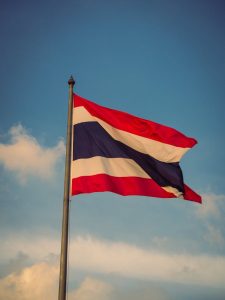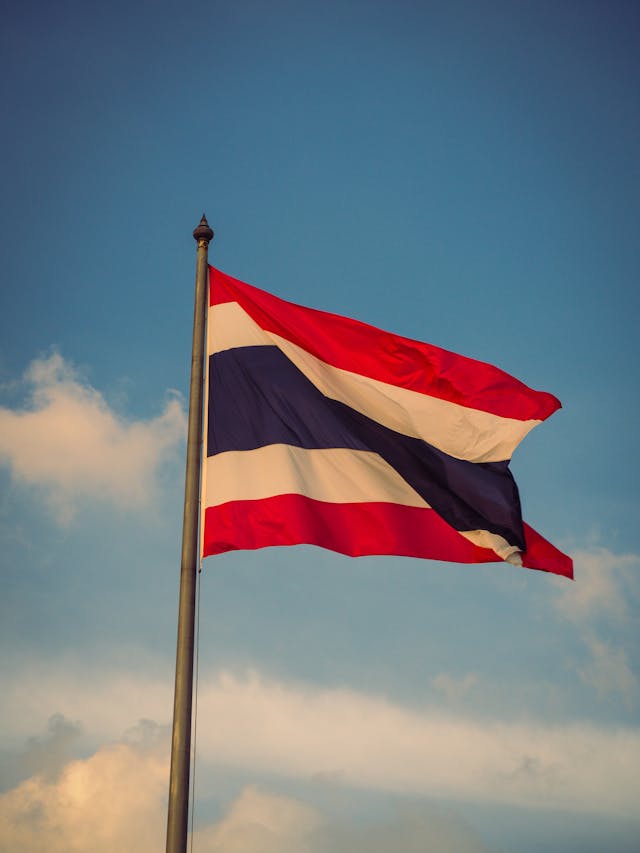
Thailand has long been a favored destination for tourists, expatriates, and digital nomads. Its rich culture, affordable living, and beautiful landscapes make it an attractive place to live and work. In response to the growing demand from remote workers and digital nomads, Thailand has introduced the Destination Thailand Visa (DTV). This guide will provide a detailed overview of the DTV, including its benefits, eligibility requirements, application process, and how it compares to other visa options.
What is the Destination Thailand Visa (DTV)?
The Destination Thailand Visa (DTV) is a new visa category specifically designed for digital nomads and remote workers who wish to live and work in Thailand. This visa offers a five-year multiple-entry option, allowing holders to stay in Thailand for up to 180 days per visit. The DTV aims to attract individuals who can work remotely and contribute to the local economy while enjoying the unique lifestyle Thailand has to offer.
Key Features of the Destination Thailand Visa
Multiple Entries
One of the most appealing aspects of the DTV is its multiple-entry feature. This allows visa holders to enter and exit Thailand as often as they like within the five-year validity period. This flexibility is particularly beneficial for digital nomads who may need to travel frequently for work or personal reasons.
Extended Stay Duration
Each stay under the DTV can last up to 180 days. This means that visa holders can live in Thailand for six months at a time without needing to leave the country. After 180 days, they can simply take a short trip outside Thailand and then return to reset their stay duration.
Cost-Effective
The DTV is relatively affordable, with a visa fee of 10,000 THB (approximately $300 USD). There is also a one-time renewal fee of 10,000 THB if you wish to extend your stay for another 180 days without leaving the country. Compared to other long-term visa options, the DTV provides excellent value for money.
Work Permissions
DTV holders are permitted to work for foreign companies while residing in Thailand. This is a significant advantage for digital nomads and freelancers who often work for clients or employers based outside Thailand. However, working for Thai companies requires a separate work permit, which is not included with the DTV.
Dependents
Visa holders can bring their spouse and children (under 20) to Thailand under the DTV. This makes it an attractive option for digital nomads with families, allowing them to live together in Thailand without the need for separate visas.
Eligibility Requirements for the Destination Thailand Visa
To qualify for the DTV, applicants must meet the following requirements:
- Age: Applicants must be at least 20 years old.
- Financial Proof: Applicants need to show proof of 500,000 THB (approximately $13,000 USD) in savings. This can be in a Thai or foreign bank account.
- Visa Fee: A fee of 10,000 THB is required for the visa application.
- Employment: Proof of employment with a foreign company or evidence of freelance work is necessary. This ensures that applicants have a legitimate source of income while residing in Thailand.
Application Process
The application process for the DTV is expected to be straightforward, with applications likely being accepted at Thai immigration offices within Thailand and at Thai consulates and embassies worldwide. You can also apply on the Thai e-Visa portal. Here is a step-by-step guide to the application process:
- Prepare Documentation: Gather all required documents, including proof of age, financial proof, proof of employment, and a completed visa application form.
- Submit Application: Submit your application at a Thai immigration office or a Thai consulate/embassy. Ensure that you pay the visa fee at the time of application.
- Wait for Approval: The processing time for the DTV application may vary, so be prepared to wait for a few weeks.
- Receive Visa: Once approved, you will receive your DTV, allowing you to stay in Thailand for up to 180 days per visit for five years.
Benefits of the Destination Thailand Visa
Flexibility
The DTV offers unparalleled flexibility for digital nomads and remote workers. The multiple-entry feature and extended stay duration allow visa holders to travel freely while maintaining a base in Thailand. This flexibility is ideal for individuals who need to travel frequently for work or personal reasons.
Affordable Living
Thailand is known for its affordable cost of living. With the DTV, digital nomads can enjoy a high quality of life at a fraction of the cost compared to Western countries. From affordable housing and food to inexpensive transportation, living in Thailand can be a cost-effective choice.
Cultural Experience
Living in Thailand offers a unique cultural experience. From exploring ancient temples and bustling markets to enjoying Thai cuisine and traditional festivals, there is always something new to discover. The DTV encourages holders to immerse themselves in Thai culture and make the most of their time in the country.
Community
Thailand has a thriving community of digital nomads and expatriates. With the DTV, you can easily connect with like-minded individuals, join co-working spaces, and participate in networking events. This sense of community can be invaluable for both personal and professional growth.
Comparisons to Other Thai Visas
Long-Term Resident Visa (LTR)
The Long-Term Resident Visa (LTR) is another option for those looking to live in Thailand. However, it is more suitable for wealthy global citizens, wealthy pensioners, work-from-Thailand professionals, and highly skilled professionals. The LTR offers a 10-year extendable visa, fast-track services, tax exemptions, and work permit eligibility. The requirements for the LTR vary by category, with specific income and investment criteria.
Eastern Economic Corridor (EEC) Visa
The Eastern Economic Corridor (EEC) Visa promotes investment in the EEC area and is targeted at investors and professionals in specific industries. It offers an initial two-year visa, which can be extended. The EEC Visa includes a work permit and allows multiple entries.
Tourist Visa
Thailand also offers various tourist visas, including a new 60-day tourist visa for tourists and short-term business travelers from 93 countries. This visa is ideal for short visits but does not offer the same flexibility and long-term stay options as the DTV.
Additional Measures Approved by the Thai Cabinet
In addition to the DTV, the Thai Cabinet has approved several measures to attract more tourists and long-term residents:
- Visa-On-Arrival: Expanded to more countries, allowing for a 60-day stay for tourists and short-term business travelers.
- Student Visas: Expanded rights for students, including the ability to stay post-graduation for job search and eligibility for work permits.
Unanswered Questions and Future Updates
While the DTV offers many benefits, there are still some unanswered questions:
- Application Timeline: The exact timeline for when the DTV will be available is still pending. It is expected to be fully rolled out in July.
- Tax Implications: The tax implications for DTV holders are not yet clear. It is important to consult with a tax professional to understand your obligations while living in Thailand.
- Proof of Employment: The specific requirements for proving employment or freelance work are still being clarified.
- Local Work: It is uncertain whether DTV holders can provide freelance services to Thai companies without a separate work permit.
As more information becomes available, it will be important to stay updated on the latest developments regarding the DTV and other visa options.
Conclusion
The Destination Thailand Visa (DTV) represents a significant step forward in making Thailand an attractive destination for digital nomads and remote workers. With its flexible entry and stay options, affordable cost, and support for remote work, the DTV is poised to become a popular choice for those looking to live and work in Thailand. As the visa rollout continues and more details emerge, it is expected to further enhance Thailand’s appeal as a global hub for digital nomads.
Whether you are a seasoned digital nomad or considering a move to Thailand for the first time, the DTV offers a unique opportunity to experience all that Thailand has to offer while maintaining the freedom to travel and work remotely. Stay tuned for updates and be ready to embark on your Thai adventure with the Destination Thailand Visa.
For more detailed information and to start your application process, you can visit the Thai Immigration Bureau or the Thai Embassy.

